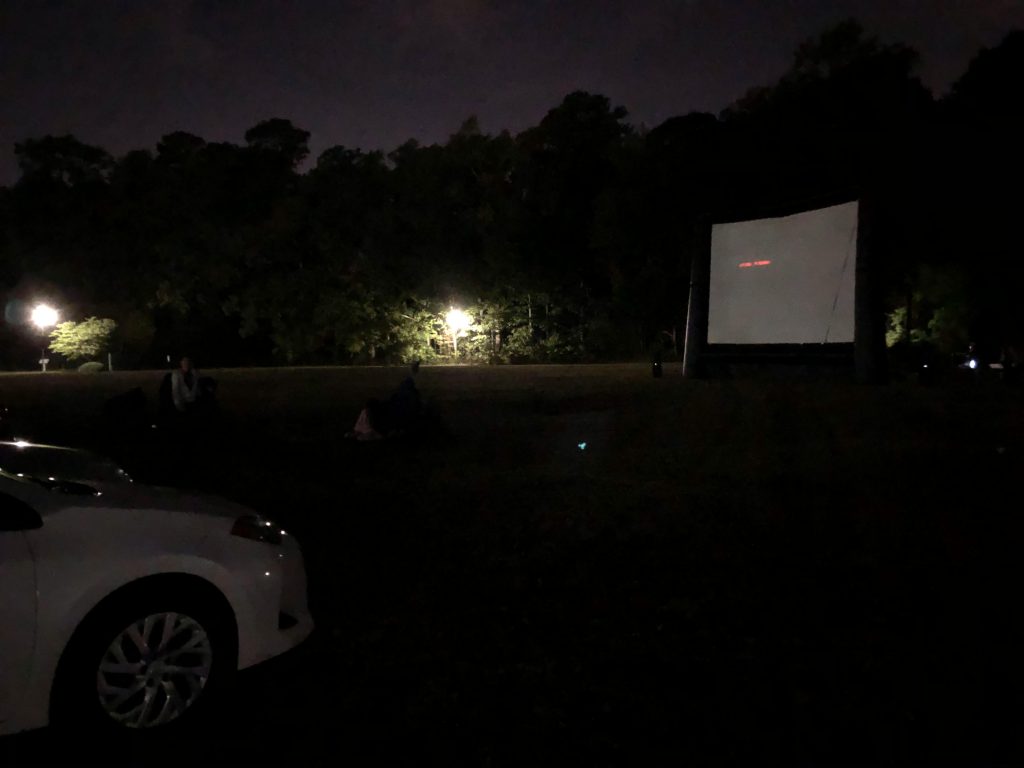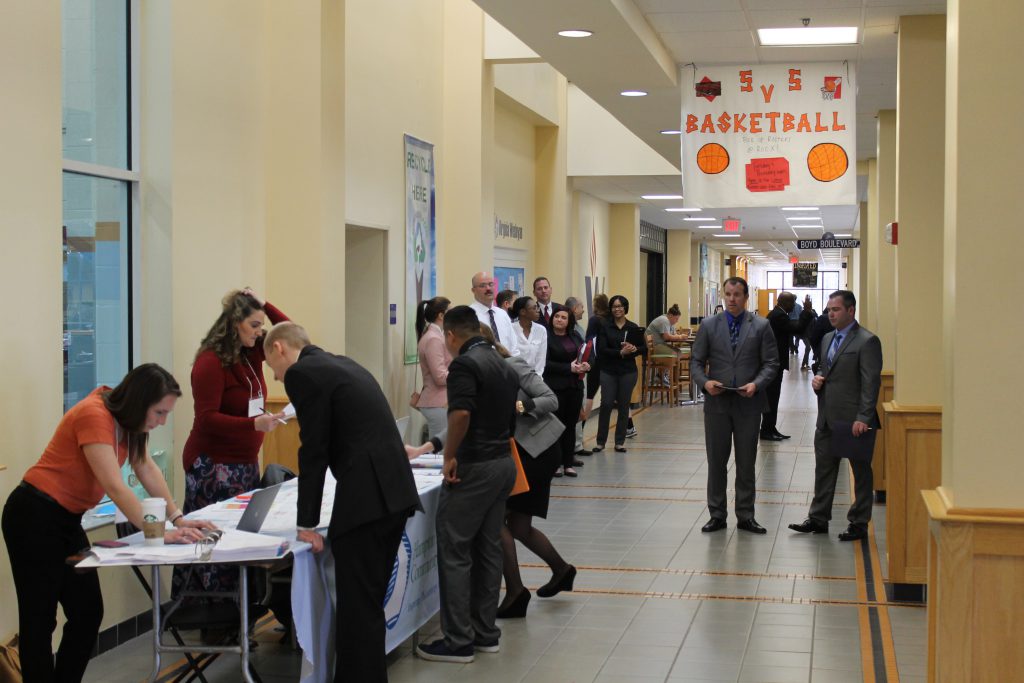Rayven Davis
Staff Writer
About 170 students, faculty and staff started the year off by volunteering their time for the 7th Annual Homeless Shelter. The shelter was held on campus for one week during winter session, hosting a total of 57 guests in the CMAC.
This year, the shelter leaders consisted of junior Lawan Brown, librarian Patty Clark, sophomore Brian Drake, and seniors Rebecca Thokar, Ainsley Foster, Meaghan Groah and Amy Smith.
Operating Manager Diane Hotaling, director of Community Service, advised and led shelter leaders.
“When a guest who was especially happy about the dinner meal and foot soak lingered so long in the warm bath that it was almost lights out, his mat was not down yet … I secured his mat and blankets for him,” Hotaling explained, recalling the new, fond memory. “As I knelt to sanitize the mat, the gentleman, snug beneath his blanket on the floor beside me, said softly, ‘You people are so nice.’ I said, ‘We think you are, too.’ He smiled and drifted off to sleep.”
Hotaling believes that the experience of shelter makes a true Marlin and can think of few people who graduate without participating in the homeless shelter at least once. It is an opportunity that shapes the lives of everyone who has experienced it and taught them a new understanding of the world.
Smith has been participating in shelter for three years. This is her second year as a leader. She began preparations for the shelter hoping to make a small difference.
While staying at the shelter, guests participated in various activities and were provided with a warm meal every evening. Not only did guests enjoy a place to sleep for the evening, but they looked forward to the joy of pleasant company and nurturing community.
“One of my favorite stories from shelter was this past year,” said Smith. “On our last night, I was talking to a guest named Erik. He told me he has been in the shelter for a while and gone to many different places that have hosted them. He looked at me with grateful eyes and said, ‘You can tell when someone does this kind of volunteering because they have to, or because they want to, and when I come to Virginia Wesleyan, you can tell you do it because you have the biggest hearts.’”
As with many volunteers, Smith treasures and appreciates the lessons the guests have taught her over the years.
“It was so amazing knowing [Erik] felt so welcomed,” Smith said. “This is what we strive for, a family-type atmosphere.”
The emotional connections with others in the community and the opportunities for personal discovery are some of the greatest results of volunteering for the shelter.
“One guest said, ‘You may forget what someone has done for you, but you’ll never forget how it made you feel,’” Foster said. “I think that this sums up my whole shelter experience. Not only did I learn about the guests, I learned about myself. So often we take things for granted and spending a week devoting my time to people who have just come across unfortunate situations really put things into perspective. Working the homeless shelter is such a humbling experience.’”
“The shelter experience brings the campus together in many ways to engage and support the individuals in our communities,” said Clark. “While the shelter is open for only one week, the experience lasts the entire year due to the interactions that we all have during that week.”
The shelter is powerful in its ability to strengthen the school’s community.
“VWC people get to know each other in amazing ways,” said Clark. “Contributions come from so many people: coaches, staff and faculty in all departments, students and their families, alumni and VWC administration.”
Participants in the shelter hope that it can affect the campus and the community, and make a difference.
“On campus, I hope that the shelter will always be an experience that knits us together, dispels stereotypes about the homeless and inspires some students to pursue careers in which they improve conditions for this population,” said Hotaling. “In the community, I hope our interactions with the homeless individuals make each of them feel loved and creates in them optimism about their future.”

